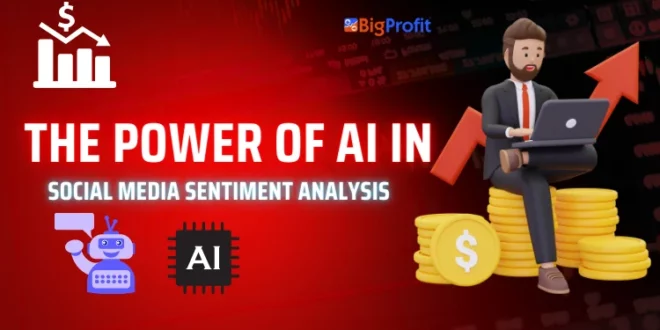B2B SaaS marketers must understand their buyers’ sentiments – both positive and negative – to devise effective demand generation strategies. Social media sentiment analysis is an invaluable way of gathering valuable data that will fuel business expansion.
Buyers frequently express their views about various products through comments, tweets and posts on various social platforms such as Twitter or Instagram. Such sentiment analysis tools allow for easy identification using text data alongside emoticons and emojis found therein.
1. Sentiment Analysis with Artificial Intelligence
Customers are increasingly sharing their opinions and sentiment analysis of brands across social media, reviews, customer support interactions and news comments – offering plenty of unstructured data which could yield invaluable insights – provided you can understand what these unstructured data points mean.
With machine learning and AI tools at their disposal, companies can analyze customer feedback for greater insight into customers’ sentiment analysis of products and services as well as those offered by competitors.
Analytics tools like these can assist businesses in making smarter decisions to enhance customer experience and boost business performance, alert teams to urgent customer issues so that they can be addressed quickly, and allow teams to focus on more pressing needs faster. When used appropriately, such analytics tools can be highly powerful.
2. AI-Powered Automation
Marketing teams require being able to quickly adapt to emerging trends and stay ahead of competitors, and AI-powered automation can assist them with this goal.
AI can automate repetitive tasks and provide insights based on data to help marketers focus their efforts where they will have the greatest effect. Furthermore, it reduces manual work by freeing employees up for more complex and creative work.
Artificial intelligence can also help customers receive relevant content and offers through improved personalization. AI-powered chatbots using Natural Language Processing technology to interact with customers real time can achieve this level of personalization, increasing customer satisfaction and sales simultaneously.
3. AI-Powered Trend Analysis
Artificial intelligence’s rapid ascent has raised serious concerns regarding accuracy, fairness and transparency of its outputs. Interpretable AI models help address these worries by making predictions easily comprehensible and traceable.
Customers voice their opinions and experiences of brands across the internet – be it social media posts, reviews or support tickets – which often take on a nuanced nature that standard AI cannot comprehend.
AI-powered trend analysis offers businesses real-time insight into customer feedback volumes, frequencies and quality in real time. This enables businesses to tailor product and service offerings according to customer needs and expectations as well as identify customer issues which require immediate attention; making AI an invaluable asset in customer support.
4. AI-Powered Content Creation
Content creation is one of the core tenets of marketing. Artificial Intelligence can help you generate massive amounts of material quickly; however, editing AI-generated posts to align them with your brand message and voice remains advised.
AI can create text-based content such as blogs, ad copy and social media posts; it has also proven adept at creating video and audio material. By outsourcing this aspect of your writing staff to AI-powered tools for content production, companies can save considerable amounts.
Sentiment analysis can be an invaluable asset to companies’ branding and customer engagement efforts, helping improve internal communications while pinpointing areas for improvement. It allows organizations to strengthen internal communications while pinpointing key areas where further enhancement may be necessary.
5. AI-Powered Customer Engagement
An innovative engagement vision demands the appropriate set of AI-powered tools, core technology and data. A holistic approach brings all these elements together for proactive support that reduces contact volumes while simultaneously elevating customer satisfaction levels.
An AI-powered chatbot, for instance, can answer simple customer questions, collect key customer data and recommend resources that can assist customers in self-resolving their own issues. This frees agents up to focus on more complex tasks requiring human interaction resulting in faster first response times and lower handle times for all tasks handled by human agents.
AI-powered tools like trend analysis make it simple and effortless to monitor conversations about your business, product or service and identify trends and opportunities for new campaigns. Trend analysis can be particularly powerful for consumer product and services brands; for example Sephora uses facial recognition technology to recommend makeup products tailored specifically to each customer based on their skin tone.
 BigProfit Profit through Algo & Technical Trading
BigProfit Profit through Algo & Technical Trading




